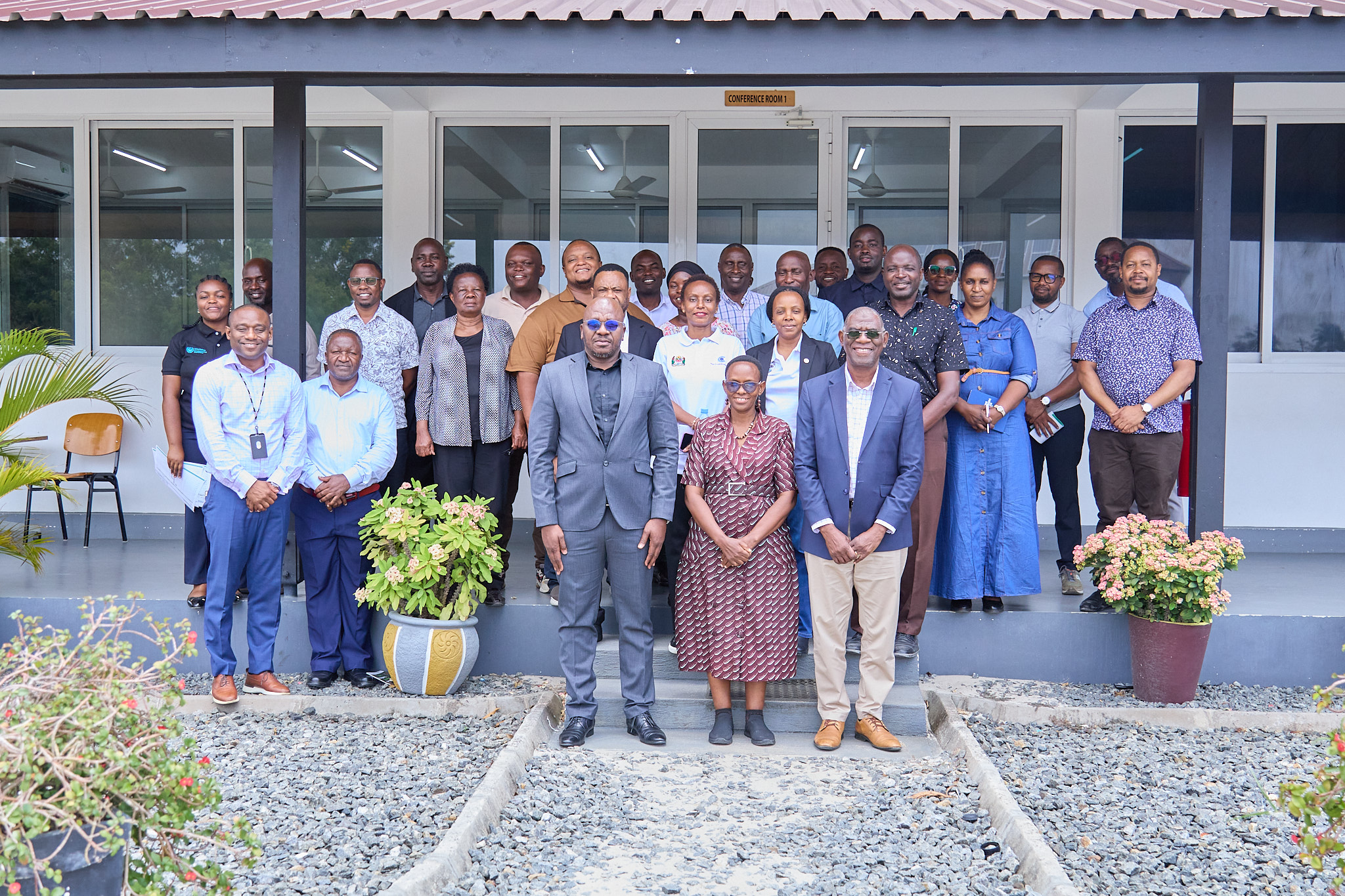
VISIT: National Biosafety Committee inspects Transmission Zero Laboratory in Bagamoyo

On 24 October 2025, the Ifakara Health Institute, through its Transmission Zero Project, hosted a delegation of 25 members from the National Biosafety Committee (NBC). The committee operates under the Vice President’s Office – Division of Environment, overseeing biosafety standards and regulatory approvals for biotechnology research in Tanzania.
The aim of the visit was to inspect the Transmission Zero Laboratory (MPL3) in Bagamoyo, which will be used for contained research on genetically modified mosquitoes. The inspection followed the NBC’s review of the project’s application dossier on 4 September 2025 in Morogoro, where the committee recommended a site visit as the final step before granting the research permit.
Ifakara’s commitment to ethical research
In his opening remarks, Ifakara’s Chief Executive Director, Dr. Honorati Masanja, welcomed the NBC delegation and emphasized the importance of scientific transparency, biosafety, and collaboration in advancing innovative malaria control strategies. He noted that the Transmission Zero Project reflects Ifakara’s commitment to conducting high-quality, responsible research aligned with national and international biosafety standards. Dr. Masanja also highlighted the value of partnerships between scientists, regulators, and communities to ensure that technologies such as genetically modified mosquitoes are developed and implemented safely and ethically.
Lab tour and technical discussions
During the visit, the delegates toured the Transmission Zero Laboratory (MPL3), observing its containment systems, workflow design, and safety measures for handling genetically modified mosquitoes. Guided by the project’s scientific team, they were briefed on the laboratory’s operational standards, specialized equipment, and strict biosafety protocols designed to ensure secure and compliant research practices.
Advancing innovation under biosafety oversight
The Transmission Zero Project aims to develop sustainable, science-driven solutions to interrupt malaria transmission through advanced genetic technologies. The NBC visit marked a key milestone toward initiating contained research activities under stringent biosafety oversight — reinforcing Ifakara’s leadership in malaria research and commitment to responsible innovation.
Next steps and collaboration
Both parties reaffirmed their commitment to continued collaboration, ensuring that the research upholds Tanzania’s biosafety standards while contributing valuable insights to global malaria elimination efforts. The visit strengthened ties between Ifakara Health Institute, the National Biosafety Committee, and the Vice President’s Office – Division of Environment, paving the way for responsible scientific advancement and public trust in genetic research.
